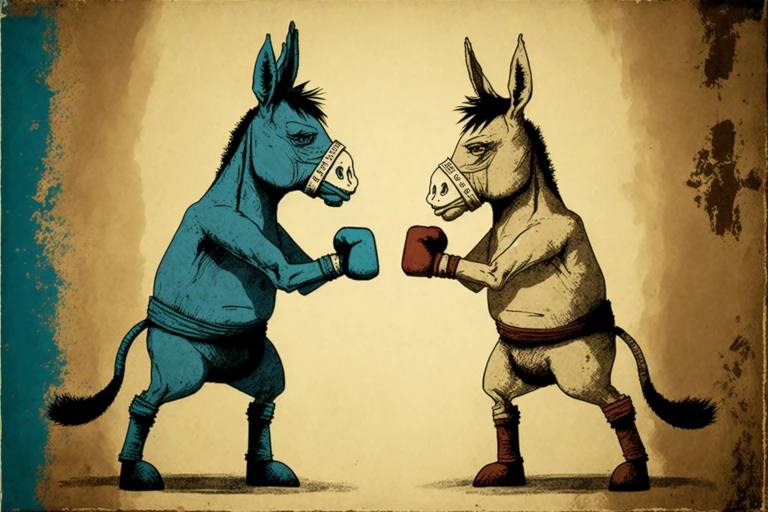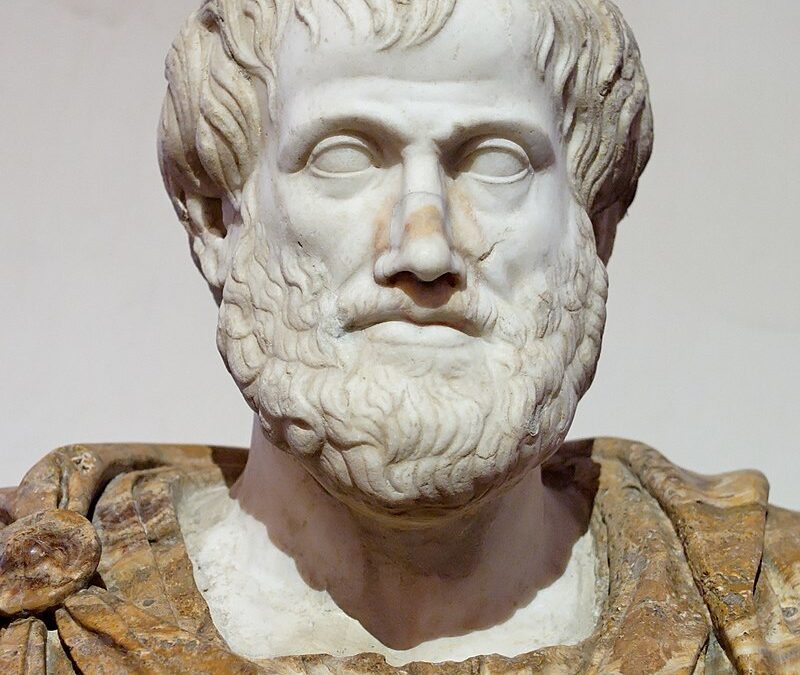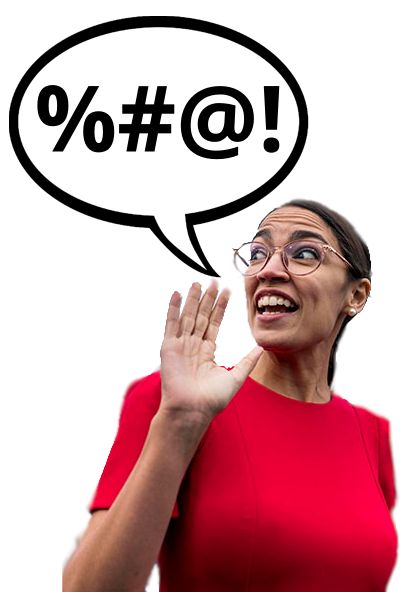Malcolm Gladwell and Truth Malcolm Gladwell knows how to ruffle feathers. He elicits strong opinions and most familiar with his work either love him or hate him. I enjoy his essays and recently began listening to his Revisionist History podcast. It’s pretty good, and I recommend it, but there are times when Gladwell’s methodology of dressing up journalism with the veneer of academic respectability cannot hope to be commensurate with its subject matter. I have defended Gladwell’s writing in the past, but there are times when he fails to assess a situation with the objectivity necessary to understand it. In short, there are times when Malcolm Gladwell would make for a great subject of a Malcolm Gladwell essay.
I want to look at three podcasts that illustrate my point. “McDonald’s Broke My Heart,” “The Basement Tapes,” and “Burden of Proof.” The first two were the final episodes of Season 2 and the last was the second episode of Season 3. This order is important because contrasting the episodes exposes a logical inconsistency at best and hypocrisy at worst.
Malcolm Gladwell Hates Football
Gladwell began Season 2 by exclaiming that he “hates golf.” While he doesn’t do the same with football in Season 3, he might as well have. In “Burden of Proof,” Gladwell harshly condemns the sport of football for causing head trauma that has been linked to several suicides. The story aired at a time when public attention to chronic traumatic encephalopathy (CTE) seemed to pose an existential threat to the sport. Gladwell details how he gave a speech at Pennsylvania University and was asked to speak about “proof.” Incidentally, three years prior, a Penn football player suffering from CTE committed suicide.
Gladwell’s thesis is simple: given enough evidence, absolute proof should not be required to act. Pretty much anyone can agree with that. As an example, he cites coal miners. A statistician at Prudential Insurance Company named Frederick Hoffman concluded that coal miners suffered adverse health conditions due to their exposure to coal dust. “Black lung,” which is incontrovertibly bad today. Measures weren’t taken to protect the workers because Hoffman’s reports were said to lack absolute proof. Gladwell compares this situation to football and CTE, claiming that sufficient evidence exists to ban the sport altogether.
In a vacuum, Gladwell’s argument against football seems pretty strong. If football kills even a small number of participants and we value human life more than any positives we may derive from football, it stands to reason that football has been implicated in enough deaths to ban it. But arguments don’t exist in a vacuum. Gladwell has already conceded that he values a certain culinary delight more than the lives of millions of people. Because in Season 2, Gladwell came to the defense of the French fry.
Malcolm Gladwell Loves French Fries
After reaching the conclusion of “McDonald’s Broke My Heart,” I thought I had encountered a strange case of Gladwell being lazy. In the episode, Gladwell tells the story of how Phil Sokolof spent millions of his own dollars campaigning against saturated fat. The golden arches of McDonald’s would prove to be his greatest conquest when they stopped using beef tallow to cook French fries. Gladwell laments McDonald’s decision, arguing that the perfect French fry is worth a bit of indulgence.
The episode seems odd because Gladwell never really addresses the validity of Sokolof’s claim that replacing saturated fat with unsaturated fat would have any health benefits. I had thought that the war on saturated fat was largely ineffective and the various saturated fat replacements caused more harm than good. It turns out that Gladwell knew this and in researching this aspect of the episode, he found it so interesting he dedicated the followup episode to entirely covering this subject. Here we find “The Basement Tapes.”
The most interesting part about Gladwell’s decision to divide these episodes is that he maintains his traditional structure for each. Like an academic paper, each has a central thesis. Perhaps when the plan was to have one episode, the thesis for “McDonald’s Broke My Heart” would have gone something like this: “McDonald’s should not have changed their recipe because it was less tasty and less healthy.” But Gladwell ignores the health part, saving that for the next episode. In fact, knowing that McDonald’s probably believed they were making the recipe healthier, he explicitly argues that they should have ignored the health concerns. To the best of their knowledge, at the time, the modified recipe was healthier. Gladwell insists they should have held their ground for the sake of good taste, health be damned. In other words, the benefits of delicious fries outweighed any potential deaths that may have been caused by a high fat diet.
Preferences Shape an Argument
In “Burden of Proof,” Gladwell describes his speech at Penn as not entirely successful. He says that during the question and answer period several students protested his central thesis. Some asked about tweaking the rules and oversight to better protect players. Others asked about the social and cultural benefits of football. A football player pointed out that he only received the opportunity to attend Penn because of his football scholarship. These students asked Gladwell what he traditionally asks audiences to do: consider the subject from every angle. Gladwell dismissed these concerns because, he claims, they surely could not equal the life of the player who died. We can be fairly confident that banning football will prevent future deaths, therefore we ought to ban football.
Poor diet, on the other hand, which kills far more people annually than football ever will, can be excused so long as the cuisine in question makes Gladwell happy. When it comes to French fries, Gladwell balks at the idea of even attempting to make them healthier. The original McDonald brothers’ recipe was perfect and therefore we ought to preserve it, he argues.
Perhaps Gladwell is okay with unhealthy French fries because for him, they are a rare treat. He begins the episode by explaining that he was a teenager the first time he tried McDonald’s French fries because his parents fed him healthy food. If someone eats an unhealthy amount of French fries, is that not a choice they have made? But the same could be said for football. We know that CTE is caused by repeated concussions, and it’s something players could mitigate if they removed themselves from the game when concussed. While in previous generations the severe risks of CTE were unknown, current players and coaches are well aware of these risks and what steps need to be taken to mitigate them. Why should French fries refuse to compromise for the sake of millions of people while football cannot even compromise—it must be abolished entirely—because it affects a very small percentage of the population?
When the students ask Gladwell about taking a more nuanced approach that could both preserve the game of football and player health, he refused to even give such ideas consideration. Gladwell has allowed his preference to put up blinders and cannot acknowledge the legitimacy of counterarguments.
I do not fault Gladwell for having an opinion and approaching the subject from that perspective, but he stubbornly refused to consider all the facts. Unlike many Gladwell critics, I do not think biased thinking such as what I detailed above exposes Gladwell to be a fraud. We are all susceptible to biased thinking and anyone with Gladwell’s output is likely to become ensnared in a trap of their own creation at some point. Stephen Jay Gould often made an argument regarding preference and objectivity. Here are two examples of this argument I quickly found on the internet:
Objectivity must be operationally defined as fair treatment of data, not absence of preference — Mismeasure of Man
Objectivity cannot be equated with mental blankness; rather, objectivity resides in recognizing your preferences and then subjecting them to especially harsh scrutiny — and also in a willingness to revise or abandon your theories when the tests fail (as they usually do) — Lying Stones of Marrakech
Gladwell didn’t treat the data fairly, which is a shame, because when he does he crafts excellent essays.
Malcolm Gladwell Incorrectly Defines Proof
While Gladwell expresses exasperation at the idea of demanding proof, he stumbles upon an interesting epistemological question. When the administrators at Penn asked Gladwell to talk about “proof,” they probably imagined that he would talk about the epistemological challenges of his work. Instead, he demonstrates that he doesn’t actually understand epistemology. This is probably why so many academics hate him. The relevant quote:
Proof would be if you identified 2,000 people, half of whom play football and half of whom do not, followed them over the course of their lives and compared the autopsies of their brains at death. Did the football players have, on average, more of the protein tau in their brain tissue than the non-football players?
A study of 2,000 people with every piece of possible data meticulously accounted for and evaluated would not constitute proof. Nor would a study of 10,000 people, 100,000 people, nor millions of people. It would constitute evidence. Now, Gladwell’s overall thesis is that we don’t need proof, we just need evidence, but no knowledgeable scientist would contradict that. In fact, when Gladwell mentions that Fredrick Hoffman’s claims about black lung were dismissed because he lacked proof, he doesn’t provide any citations to back up this claim. But even if someone said that, they would clearly be using “proof” in its colloquial sense, which would be the same as saying, “you haven’t provided enough evidence.”
A classic philosophical challenge to proof is known as “the problem of induction.” This challenges our ability to make predictions based on previous observations, and hence challenges empiricism (science) as a whole. For example, in “the black swan problem,” we consider that a black swan was used as an example of a nonexistent being for hundreds of years. A European once could make the following argument:
Thousands upon thousands of swans have been observed, generation after generation, and every swan has been white. Therefore, all swans are white.
Or, inverted, one could conclude that “black swans do not exist.” Then in the 17th century Dutch explorers in Australia observed black swans. This problem vexed science as it suggested that induction based conclusions could never be logically supported. That is to say, you can prove something wrong (falsify it), but you can’t prove something right. Even if all swans were white, there’s always the possibility of an elusive black swan. However, once a single black swan has been observed, the theory that “all swans are white” has been falsified.
Karl Popper developed the most widely accepted solution to the problem of induction by rejecting induction altogether. This is why scientists avoid the word “proof.” A scientist does not set up an experiment with the goal of proving their theory right. That’s an impossibility. They set up an experiment with the goal of disproving their theory and the theory still stands as plausible should the experiment fail to disprove it. The inability to falsify a theory lends evidence to its truth, though it will never fully prove it. If you want absolute proof your theory needs to be mathematical and constrained to the abstractions of mathematics.
Properly understanding proof hardly changes Gladwell’s argument, and in fact makes it much easier: “The threshold of evidence to act upon a theory under the assumption it’s true ought to be low when lives are at stake.”
We need to quibble about proof because Gladwell grounds his thesis in proof. He tells us that critics rejected Hoffman’s black lung argument for a lack of proof. But he provides no examples. No evidence. He provides a statement from Penn lamenting the death of their football player as evidence that they demanded proof to buy the argument that CTE led to the death of a player, but their statement says no such thing. They just avoid addressing the issue of player safety. It seems very likely, in both cases, the arguments weren’t rejected because they lacked “proof.” They were rejected because the parties involved didn’t care. Mining coal was not going to be banned because it was deadly. Mining coal was already known to be deathly hazardous even before the dangers of black lung were revealed. Similarly, football wasn’t going to be banned because it causes neurological impairment. It’s simply a risk we, as a society, have accepted. Proof has nothing to do with it.
In “The Basement Tapes,” Gladwell talks to Robert Frantz about a multi-year study conducted by his father, Ivan Frantz Jr. The elder Frantz, convinced that saturated fat led to heart disease and death, conducted a highly controlled study that concluded that, counter to its hypothesis, higher cholesterol from a diet rich in saturated fat did not lead to lower life expectancy. The theory that Frantz believed in so much that he kept a rigid diet based upon it for himself and his family, was falsified.
Gladwell is concerned how this negative result must have made the father feel, and how it must have made the son—a doctor—feel about the family legacy. Isn’t it crushing to have a worldview turned upside down? His life’s work discredited. Gladwell is shocked that the son isn’t disappointed and doesn’t feel as if his father would be, either. Both view the study, despite being falsified, as contributing to science and knowledge. What Gladwell sees as swallowing a huge slice of humble pie is just scientists being scientists. Falsification is the notable result, not the failure to falsify. Evidence that lends support to a theory does not prove the theory, it merely fails to falsify it.
Gladwell is a Journalist
As I have written about before, when consuming any content created by Gladwell, it’s important to keep in mind that he’s a journalist, not an academic. His subject matter and reliance on academic journals, experts, and experiments often suggests an academic rigidity that doesn’t actually exist. He’s trained as a journalist and he arrives at conclusions the way a journalist does, not a scientist. Things become more complicated considering he often leans on psychology—a discipline hampered by questionable practices and conclusions already—to arrive at his conclusions.
Still, I appreciate Gladwell’s contributions. He seeks the truth and often finds it, even if at times he allows hubris to blind him to the limitations of his methodology. After all, the same could be said for many of his critics.





